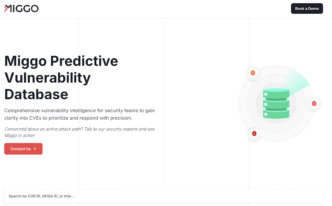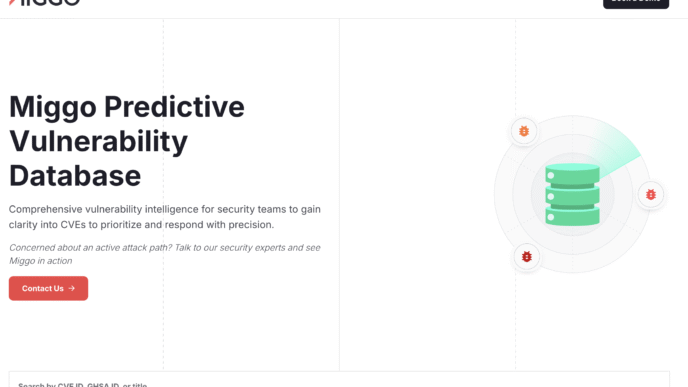Inflation is causing tech companies to rethink how they price their products. As costs rise, these businesses must adjust their strategies to stay competitive while still meeting consumer needs. This article explores the effects of inflation on tech pricing, the strategies companies are using to cope, and how consumers are reacting to these changes.
Key Takeaways
- Inflation is raising costs for tech companies, making them rethink their pricing strategies.
- Tech firms are adopting new technologies and improving supply chains to save money.
- Consumers are looking for cheaper alternatives and more refurbished products due to rising prices.
- The tech industry may see innovations as companies adapt to ongoing inflation.
- Government policies, like tariffs, can significantly impact tech pricing and availability.
Impact of Inflation on Tech Product Pricing
Rising Costs of Raw Materials
The cost of raw materials has been increasing significantly due to inflation. This affects tech companies directly, as they rely on various materials to produce their products. For instance:
- Metals like aluminum and copper have seen price hikes.
- Semiconductor materials are also more expensive.
- Packaging materials are costing more than before.
Increased Labor Expenses
Labor costs are rising as companies need to pay more to attract and retain workers. This is especially true in the tech sector, where skilled labor is in high demand. Companies are facing:
- Higher wages to keep employees.
- Increased benefits and bonuses.
- More spending on training and development.
Higher Shipping and Logistics Costs
Shipping costs have surged due to various factors, including fuel prices and supply chain disruptions. This has led to:
- Increased freight charges.
- Longer delivery times, which can affect product availability.
- Companies needing to find new shipping partners to manage costs.
As inflation continues, tech companies must adapt their pricing strategies to remain competitive while managing rising costs.
| Cost Factor | Impact on Pricing |
|---|---|
| Raw Materials | Increased prices |
| Labor | Higher wages |
| Shipping & Logistics | Elevated costs |
Strategies Tech Companies Are Using to Mitigate Costs

Tech companies are facing rising costs due to inflation, prompting them to adopt various strategies to manage expenses effectively. These strategies are crucial for maintaining profitability in a challenging economic environment.
Adopting Cost-Effective Technologies
- Implementing automation tools to streamline operations.
- Utilizing cloud services to reduce infrastructure costs.
- Investing in AI and machine learning to optimize processes.
Streamlining Supply Chains
- Reducing the number of suppliers to simplify logistics.
- Consolidating shipments to lower transportation costs.
- Exploring local sourcing to minimize shipping expenses.
Negotiating Better Supplier Contracts
- Seeking long-term agreements to lock in prices.
- Leveraging bulk purchasing to gain discounts.
- Collaborating with suppliers to find cost-saving solutions.
By focusing on these strategies, tech companies can better navigate the challenges posed by inflation and maintain their competitive edge in the market.
Consumer Reactions to Price Changes in Tech Products
Shift Towards Budget-Friendly Alternatives
As tech prices rise, many consumers are looking for budget-friendly options. This shift is evident in several ways:
- Increased interest in off-brand products.
- More consumers are considering used or refurbished items.
- Many are opting for basic models instead of high-end versions.
Increased Demand for Refurbished Products
The demand for refurbished tech products has surged. Consumers are realizing that they can save money while still getting quality products. This trend is driven by:
- The desire to save money in a tight economy.
- The growing availability of certified refurbished items.
- Awareness of the environmental benefits of buying used products.
Impact on Brand Loyalty
Rising prices are also affecting brand loyalty. Many consumers are re-evaluating their preferences and may switch brands if they feel prices are too high. Key points include:
- Loyalty may wane if prices continue to rise.
- Consumers are more willing to try new brands that offer better value.
- Brands that maintain reasonable prices may see increased customer retention.
In a world where prices are constantly changing, consumers are becoming more savvy and selective about their purchases. They are looking for value and are willing to explore alternatives to meet their needs.
Overall, the tech industry is witnessing a significant shift in consumer behavior as inflation drives changes in pricing strategies. Companies must adapt to these new consumer preferences to maintain their market share.
Long-Term Effects of Inflation on the Tech Industry
Potential for Innovation and Adaptation
Inflation can push tech companies to innovate and adapt. As costs rise, businesses may invest in new technologies to improve efficiency. This can lead to breakthroughs in areas like automation and blockchain technology. Companies that embrace change may find new ways to thrive in a challenging market.
Changes in Consumer Spending Habits
Inflation often alters how consumers spend their money. People may prioritize essential tech products over luxury items. This shift can lead to:
- Increased demand for budget-friendly options.
- A rise in refurbished product sales.
- Changes in brand loyalty as consumers seek value.
Impact on Global Tech Markets
The effects of inflation are not limited to one country. Global tech markets can feel the pressure as well. Factors include:
- Fluctuating exchange rates affecting international sales.
- Supply chain disruptions leading to higher costs.
- Variations in consumer demand across different regions.
As inflation continues, tech companies must remain flexible and responsive to market changes. This adaptability will be crucial for long-term success.
Case Studies: How Major Tech Companies Are Responding
Apple’s Pricing Strategy
Apple has always been known for its premium pricing. In response to inflation, they have adjusted their pricing strategy to maintain profit margins while still appealing to consumers. This includes:
- Introducing budget-friendly models alongside premium products.
- Offering financing options to make products more accessible.
- Increasing the value of services bundled with hardware.
Samsung’s Cost Management Techniques
Samsung has implemented several cost management techniques to combat rising expenses. Their strategies include:
- Investing in automation to reduce labor costs.
- Streamlining their supply chain to minimize delays and expenses.
- Negotiating better deals with suppliers to lower raw material costs.
| Strategy | Description |
|---|---|
| Automation | Reduces labor costs through technology. |
| Supply Chain Streamlining | Enhances efficiency and reduces delays. |
| Supplier Negotiations | Lowers costs of raw materials. |
Google’s Approach to Inflation
Google has taken a unique approach to inflation by focusing on innovation. They are:
- Investing in new technologies to improve efficiency.
- Offering more refurbished products to attract budget-conscious consumers.
- Enhancing their advertising strategies to maintain revenue despite price changes.
By adapting to inflation, tech companies are not just surviving; they are finding new ways to thrive in a challenging market.
Future Outlook: Inflation and the Tech Industry
Predictions for 2024 and Beyond
As we look ahead, inflation is expected to remain a challenge for tech companies. According to forecasts, core inflation will stay above 3.0% until early 2025. This means that tech firms will need to adjust their pricing strategies to keep up with rising costs.
Potential Policy Changes
Governments may introduce new policies to help control inflation. These could include:
- Adjusting interest rates
- Implementing tariffs on imports
- Offering subsidies to certain industries
Economic Indicators to Watch
To understand how inflation will affect the tech industry, keep an eye on these key indicators:
- Consumer Price Index (CPI)
- Employment rates
- Global supply chain stability
The tech industry must adapt to changing economic conditions to thrive in the future. Companies that innovate and find cost-effective solutions will likely succeed despite inflationary pressures.
The Role of Government and Policy in Tech Pricing
Impact of Tariffs and Trade Policies
Government policies, such as tariffs and trade agreements, can significantly affect tech product prices. Tariffs can increase costs for companies, which may lead to higher prices for consumers. For example:
- Tariffs on imported electronics can raise prices by 10-25%.
- Trade agreements can lower costs by reducing tariffs.
- Policies promoting local manufacturing can also impact pricing.
Government Subsidies and Support
Governments may offer subsidies to tech companies to help them manage costs. This can lead to lower prices for consumers. Some key points include:
- Subsidies can help companies invest in new technologies.
- Support for research and development can lead to innovative products.
- Financial aid during economic downturns can stabilize prices.
Regulatory Changes Affecting Costs
Changes in regulations can also impact how much consumers pay for tech products. Important factors include:
- Environmental regulations that may increase production costs.
- Safety standards that require additional testing and compliance.
- Data privacy laws that can lead to increased operational costs.
Government actions play a crucial role in shaping the pricing landscape for tech products. By understanding these influences, consumers can better navigate the market and make informed choices.
Overall, the interplay between government policies and tech pricing is complex, but it is essential for consumers to stay informed about these changes to understand their impact on the market.
Conclusion
In summary, the ongoing inflation is forcing tech companies to rethink how they price their products. As costs rise, businesses must find ways to balance their expenses while keeping customers happy. This means they might need to change their pricing strategies, look for cheaper materials, or even change how they package their products. While some prices may start to go down, many everyday items are still costly. It’s crucial for companies to stay aware of these changes and adapt quickly to keep their customers coming back. By being smart about pricing and understanding what consumers want, tech companies can navigate these tough times and continue to grow.
Frequently Asked Questions
How is inflation affecting tech product prices?
Inflation is causing prices for tech products to rise because it makes materials and shipping more expensive.
What are tech companies doing to keep costs down?
Many tech companies are using new technologies, improving their supply chains, and getting better deals from suppliers.
How are consumers reacting to higher prices?
Consumers are looking for cheaper options, buying more refurbished products, and may be less loyal to brands.
What could happen to the tech industry in the long run?
Inflation might lead to new ideas and changes in how people spend their money.
Can you give examples of how big tech companies are handling inflation?
Apple, Samsung, and Google are all trying different strategies to manage their costs and prices.
What role does the government play in tech pricing?
Government policies, like tariffs and support, can impact how much tech companies charge for their products.













